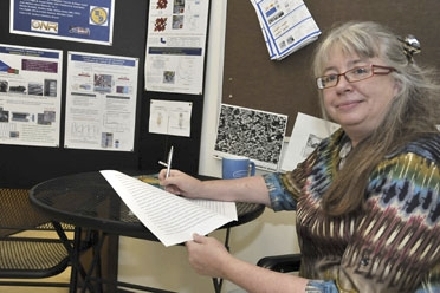Page 98 • (3,323 results in 0.032 seconds)
-

looking over the documents at the time, Barlow noticed that water was listed as a tradable commodity. Odd, she thought. And unfair. “I thought (water) should be free for all, and considered a resource,” she mused as she prepared her remarks as the keynote speaker for the Wang Center Symposium on Feb. 23. The two-day symposium will focus on water – both its growing scarcity and value, as well as its impact on socioeconomic trends. “I guess since I wasn’t a lawyer or a scientist, I saw these issues with
-

medically underserved areas in Western Washington. The community surrounding PLU experiences multiple barriers to health care, including a shortage of primary care providers and limited access to essential health services. How will this impact Parkland–Spanaway? This partnership aligns three organizations committed to health access and care, experiential learning, and service. Broadly, the new medical center will create a wide-ranging set of new jobs in health care, facilities management, information
-
See the Value of a Specialized Criminal Justice System? Warren Neely Variation in Attitudes Towards Criminal Offenders and Punishment Madeleine Willard-Herr Understanding the Aspects of Family and Peer Relationships That Impact Adolescent Deliquency Capstone Presentations 2 10:30 a.m. - 11:15 a.m.Anderson University Center, #213Values and ExpectationsCourtney BoogardCorinne LythgoeMitch PerantieCourtney Boogard Superheroes and Attitudes Towards Accountability Corinne Lythgoe Environmental Studies
-
research methods such as interview, observation and survey techniques, measurement of behavior (e.g., reaction time, speech, problem solving) as well as data analysis. For example, a student may interview a peer when the interview does not involve any sensitive, personal information. Such projects should not put participants at more than minimal risk (minimal risks are those which are ordinarily encountered in daily life), and the data should be recorded anonymously by the students (i.e., with no names
-
engagement in the campus culture has an incredible impact on students lives and success. Your investment in students, much like Haedon’s investment in me, has the potential to enact immense positive change in the university and the world. We all have the capacity to make another person believe in themself and that is what I leave you with today. I appreciate you all taking the time to listen to me and I hope you have a great rest of your evening. Thank you.” Top
-
Pacific Lutheran University has an emergency response system, which is composed of qualified Safety Officers and professional staff in Campus Safety, a campus wide emergency number, ext. 7911, and first aid trained personnel in most buildings. The system is a coordinated means of responding to any emergency on campus. Incidents of greater magnitude that may have a larger impact on the university’s academics and operations are coordinated with other campus offices, such as Facilities Management
-
Frequently Asked QuestionsQuestionanswer Toggle titleToggle content goes here, click edit button to change this text. Toggle titleToggle content goes here, click edit button to change this text.
-

contributors (10 from PLU) working on replications of eight highly cited psychological studies, it’s a major undertaking with international implications—and a multifaceted mission. CREP (rhymes with “grape”) not only helps validate psychological research findings; it also allows undergraduate students to engage in potentially publishable research. “Most student projects, the data go nowhere,” Grahe said. “In my classes I’ve always tried to get undergrads to do projects that might be publishable, but the
-

contributors (10 from PLU) working on replications of eight highly cited psychological studies, it’s a major undertaking with international implications—and a multifaceted mission. CREP (rhymes with “grape”) not only helps validate psychological research findings; it also allows undergraduate students to engage in potentially publishable research. “Most student projects, the data go nowhere,” Grahe said. “In my classes I’ve always tried to get undergrads to do projects that might be publishable, but the
-

September 7, 2012 Government scientist shares passion for empowering women and minorities By Katie Scaff ’13 The science world needs more women, particularly in academic and research institutions, said government scientist Debra Rolison. “They’re too white — and too male,” said Rolison. “There’s a statistical imbalance between women and men.” She argued for change in her field before students and professors at a seminar in Morken on PLU’s campus Friday afternoon. Scientist Debra Rolison spoke
Do you have any feedback for us? If so, feel free to use our Feedback Form.


